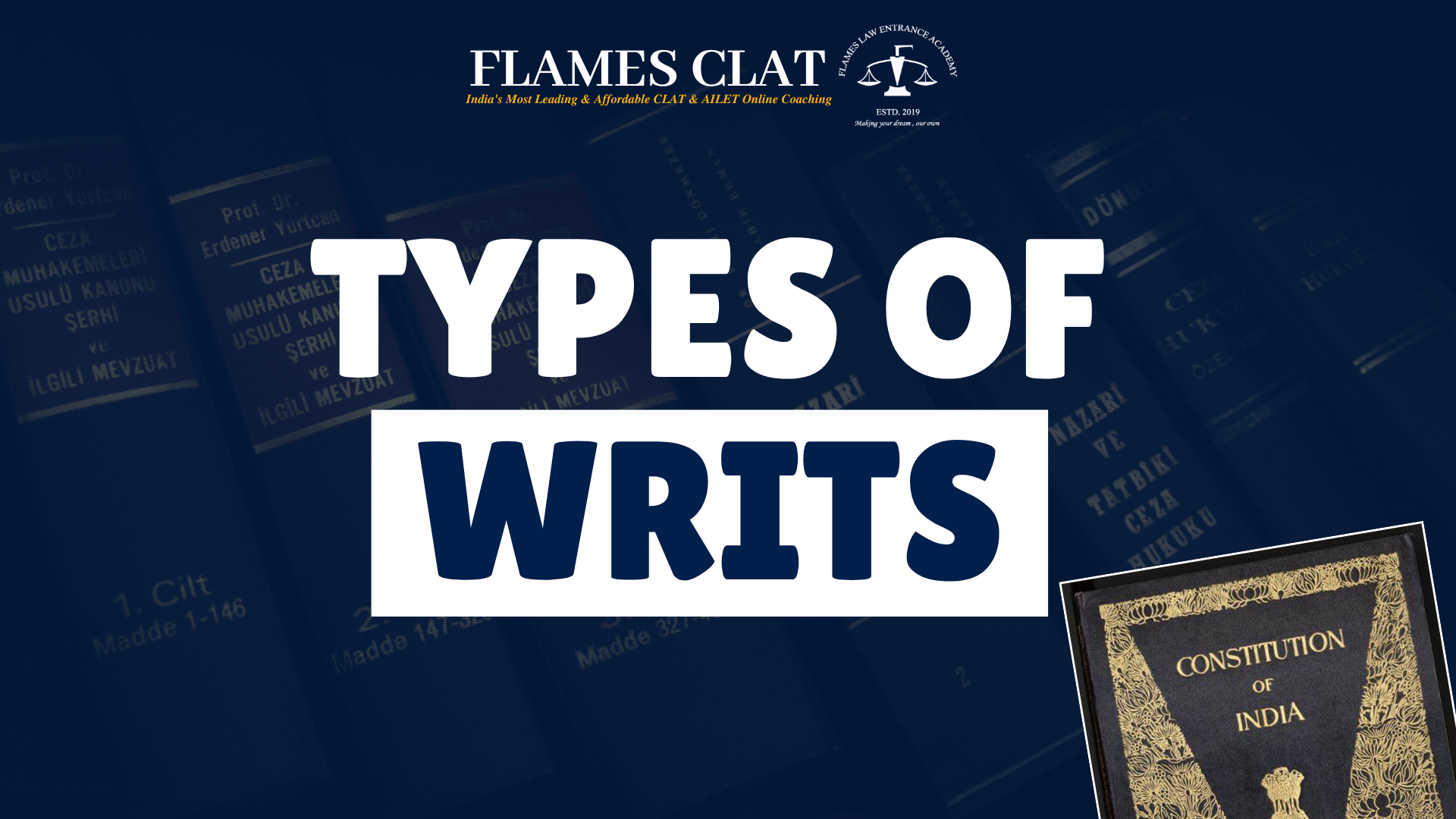WRITS UNDER THE CONSTITUTION OF INDIA
The Indian Constitution grants us fundamental rights, such as the right to life, education, and dignity. However, these rights would hold little value if there will not be any proper mechanism to protect and enforce them. Therefore to ensure that citizens can safeguard their fundamental rights, the Indian Constitution provides constitutional remedies in the form of writs. It is a necessary legal aid which enables you to seek remedies.
Writs serve as powerful legal tools that empower individuals to approach the courts whenever their fundamental rights under Part III of the Constitution are violated. The ability to file a writ petition is one of the most significant features of Indian Constitution, it ensures that justice is accessible to every citizen. For the protection and enforcement of these rights, Articles 32 and 226 of the Indian Constitution empower the Supreme Court and High Courts, respectively, to issue writs. Under Article 32, the individuals can directly approach the Supreme Court for violations of fundamental rights and the Article 226 grants similar powers to the High Courts to issue writs.
TYPES OF WRITS UNDER INDIAN CONSTITUTION
There are 5 types of writs which can be issued upon the violation of the fundamental rights. They
Are detailed below:
1.Habeas Corpus
2.Mandamus
3.Certiorari
4.QuoWarranto
5.Prohibition
1. HABEAS CORPUS- The term Habeas Corpus literally means "to have the body." It is a writ issued by a court when a person is unlawfully detained or kept in custody without sufficient legal justification. This writ acts as a safeguard against illegal detention, especially when there are unreasonable delays in legal proceedings that violate the fundamental rights of the person.
The primary purpose of the writ of Habeas Corpus is to protect an individual’s fundamental right to personal liberty by ensuring that no one is detained without lawful justification. It directs the authority or individual responsible for the detention to produce the detained person before the court and justify the grounds of detention.
This writ can be filed by:
- The person who is detained,
- A family member or relative,
- Or a legal representative of the detained person.
Importantly, Habeas Corpus can be issued not only against public authorities but also against private individuals if they are unlawfully holding someone in custody.
The court, upon hearing the case, may order the release of the person if it finds the detention to be illegal or unjustified. The writ ensures that the detainee has the right to know the reason for their detention and prevents misuse of power by authorities.
2. MANDAMUS- The word Mandamus means "we command." It is a writ issued by a court to compel a public official, body, corporation, or lower court to perform a legal duty that they have failed or refused to carry out.
The primary purpose of the writ of Mandamus is to ensure that public authorities do not neglect their legal responsibilities and perform their duties in accordance with the law. It serves as a powerful tool to hold public officers accountable and prevent administrative inaction.
This writ can be issued when:
- A public duty is imposed by law,
- The authority has failed to perform that duty,
- And there is no other adequate legal remedy available.
It is generally filed by a person who has a legal right to demand the performance of a specific duty, and that right has been denied due to inaction or wrongful refusal by the concerned authority.
3. CERTIORARI- The term Certiorari means "to be informed." It is a writ issued by a higher court to a lower court or tribunal, directing it to transfer a case for review or to quash an order that has been passed without proper jurisdiction or in violation of the law.
The primary purpose of the writ of Certiorari is to ensure judicial accountability by correcting legal errors made by lower courts or quasi-judicial bodies. It acts as a check against decisions that are illegal, unjust, or beyond the authority of the lower body.
This writ can be issued when:
- A lower court or tribunal has acted without jurisdiction, in excess of its jurisdiction, or in violation of the principles of natural justice.
- There has been a clear error of law on the face of the record.
- The order passed affects the rights of individuals unjustly or illegally.
Certiorari is always issued after the decision or order has been passed. In short, Certiorari ensures that lower courts and tribunals do not misuse their powers and justice is delivered in accordance with the law.
4. QUO WARRANTO - Quo Warranto means “by what authority”. This writ is issued by superior courts to question the legality of a person’s claim to hold a public office. It demands the person to show the authority under which they occupy the position.
The purpose of this writ is to prevent unauthorized or unlawful occupation of public posts. It ensures that only legally qualified individuals are appointed to public offices and protects the sanctity of statutory and constitutional positions.
EXAMPLE- Suppose a person is appointed as the Vice-Chancellor of a university, but he do not meet the statutory eligibility criteria. A concerned citizen can file a writ of quo warranto, asking the court to declare the appointment invalid.
This writ can be issued when:
- A person is holding a public office
- The person is not legally entitled to hold that office,
- And the office is not private or contractual in nature
5. PROHIBITION- It is a preventive writ issued by a superior courts, such as the High Court or Supreme Court, to restrain a lower court, tribunal, or any quasi-judicial authority from continuing proceedings that fall outside its jurisdiction.
The primary objective of the writ is to prevent judicial or quasi-judicial authorities from exceeding their lawful powers. By directing the authority to cease the proceedings, the court ensures that justice is delivered within the framework of legal jurisdiction.
SIGNIFICANCE OF WRITS
The Writs under the Indian Constitution are very important because they act as a powerful tool in protecting the fundamental rights of the citizens. Dr. B.R. Ambedkar remarked Article 32 as “the heart and soul of the Indian Constitution”. The five writs of the Indian Constitution – Habeas Corpus, Certiorari, Quo Warranto, Mandamus and Prohibition plays different roles but their main aim is to provide the people a mechanism by which they can seek justice on the violation of their fundamental right.
FOR MORE INFORMATION JOIN OUR TELEGRAM COMMUNITY: https://t.me/flamesclat




Write a Review
Your email address will not be published. Required fields are marked *